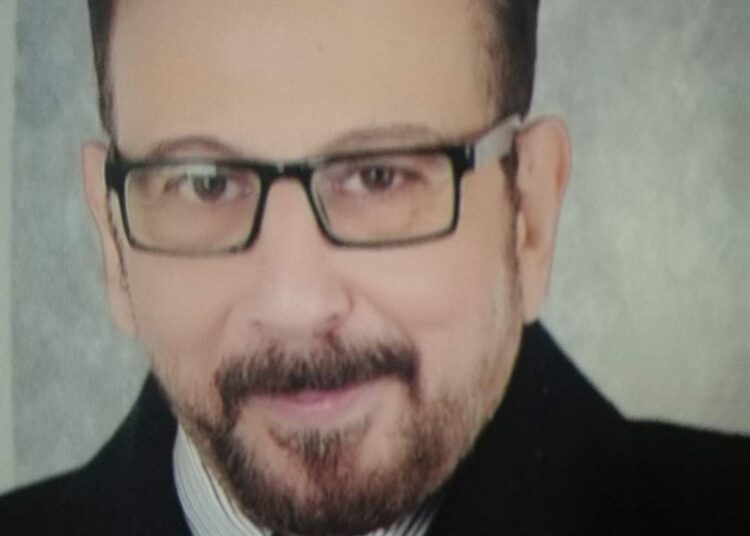By Abdelmonem Fawzi
Education gives girls a chance in life, especially in Africa where child marriage, early motherhood, and poverty are the only other options.
The problem is that girls in rural areas are excluded from education, not because of cultural resistance or unwillingness, but because of poverty, the main barrier to girls’ education.
Without a good education, youth cannot become a productive force for their countries. So, we need to remove the obstacles that prevent girls from obtaining good education and leading healthy and empowered lives.
We want to see more of our girls become engineers, doctors, business owners. This requires an immersion in technology, a serious curriculum with tools and equipment like computers, access to the internet as well as teachers trained in IT and other advanced technologies.
If we do not give teachers technology with the hardware and connectivity required, our children will not be ready for challenges ahead of them.
The good news is that African Union (AU) heads of state have collectively pledged support for the ‘Education Plus Initiative’ which was launched during the AU Mid-Year Coordination Meet.
By doing this, these heads of state, committed themselves to taking action to keep adolescent girls in school.
This will dramatically reduce their vulnerability to HIV and be an antidote against the current situation.
In 2020, six in each seven adolescents aged between 15-19 years of age, acquiring HIV in the sub-Saharan Africa region, were girls.
More than 23,000 young women have died from AIDS-related illnesses so far.
Keeping girls in secondary school and providing them with life skills, training and employment opportunities are keys to ending the AIDS pandemic.
Research shows that ensuring that girls complete secondary education reduces their risk of acquiring HIV by up to half.
It also shows that combining this with a package of services and rights for girls’ empowerment reduces their risk even further.
‘Education Plus’ calls for free and quality secondary education for all girls and boys in sub-Saharan Africa by 2025, universal access to comprehensive sexuality education, the fulfillment of sexual and reproductive health and rights, freedom from gender-based and sexual violence, school-to-work transitions, and economic security and empowerment.
President Hakainde Hichilema of Zambia, who hosted the summit, said education is the greatest equaliser and with appropriate education, everyone is given an opportunity to explore their full potential and is able to participate in the development process.
“Access to education empowers both girls and boys as it enhances their ability to access decent jobs and other means of production thus alleviating poverty,” he said.
Senegalese President of Senegal and current AU head, Macky Sall, launched the initiative in the company of three other presidents and the Chairperson of the African Union Commission, Moussa Faki Mahamat.
“It is my pleasure to join in launching the continental ‘Education Plus Initiative’ under the leadership of the Organisation of African First Ladies (OAFLAD) in support of children and young girls in particular,” President Sall said.
“There is need for action to promote women’s rights and autonomy to fight against the discrimination and violence which girls and women face,” he added.
The Senegalese president called for addressing gender inequality at all stages of life. “At the continental level, AU member states are committed to accelerating the implementation of gender-specific economic, social, and legal measures aimed at combating the HIV/AIDS pandemic by adopting various policy and legal frameworks, including the Maputo Protocol,” the Senegalese president said.
The launching ceremony of the initiative organised by the by the first lady of Zambia, Mutinta Hichilema, in partnership with the OAFLAD.
“I am confident that ‘Education Plus’ will enable us all to protect, provide and preserve the lives of adolescent girls and young women by enhancing education standards and preventing new HIV infections by use of various interventions,” the Zambian first lady said.
Meanwhile, Executive Secretary of the OAFLAD, Leyla Gozo, said her organisation lends its voice to the transformative call for gender-inclusive education in Africa.
“First ladies are uniquely positioned to amplify this initiative,” she said.
The ‘Education Plus’ initiative has taken on even greater urgency with the Covid-19 pandemic pushing millions of girls out of school.
Even before the pandemic outbreak, almost 34 million adolescent girls aged 12-17 years of age in sub-Saharan Africa were not in secondary school.
Evidence also suggests that girls are less likely to restart school once they have dropped out.
Ten African countries, namely Benin, Cameroon, the Kingdom of Eswatini, Gabon, Gambia, Lesotho, Malawi, Sierra Leone, South Africa and Uganda, have so far committed to the initiative which is jointly convened by five United Nations agencies, UNAIDS, UNESCO, UNFPA, UNICEF and UN Women. It brings governments, the civil society and international partners together.
UNAIDS Executive Director, Winnie Byanyima, said her organisation is making progress in Africa, but not fast enough.
“We need to urgently address the gender inequalities that still plague the continent, with devastating impacts on poor girls and young women,” she said.
She added that there is no time to waste.
“Working together, we can all end discriminatory laws and harmful social norms, so that our girls are healthy, educated and empowered and can lead our continent, Africa, forward,” Byanyima said.
It remains, however, to be said that when girls get a good education, they have the real possibility of directing their own destiny.






Discussion about this post